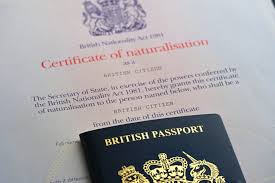Understanding Refugee British Citizenship: A Path to Security

Introduction
The plight of refugees has been a focal point in global discussions, particularly regarding their rights and pathways to citizenship. In the United Kingdom, refugee British citizenship represents a crucial opportunity for individuals who have fled persecution and conflict. This topic holds significant relevance as the UK continues to receive asylum seekers, highlighting the need for clear pathways to citizenship for those seeking safety.
The Refugee Journey
Refugees arrive in the UK often after harrowing experiences, fleeing persecution based on race, religion, nationality, political opinion, or membership in a particular social group. Once in the UK, many apply for asylum, a process that assesses their need for protection. If granted refugee status, individuals gain temporary rights to live in the UK, work, and access public services.
The Path to British Citizenship
For refugees, the journey does not end with being granted asylum. After five years of holding refugee status, individuals can apply for indefinite leave to remain (ILR). Acquiring ILR is a crucial step, as it provides permanent residency rights, allowing refugees to build a future in the UK.
Once ILR is obtained, refugees can begin the process to apply for British citizenship. This involves fulfilling residency requirements, proving their knowledge of English, and passing the Life in the UK test, which assesses knowledge about British history, culture, and institutions. The entire process can take several years and involves various fees and documentation, ultimately leading to the chance to become a full citizen.
Challenges Faced by Refugees
Despite the clear processes, many refugees face obstacles in achieving citizenship. Language barriers, the complexity of the application process, and financial constraints can hinder their efforts. Moreover, recent changes in immigration policies and public sentiment towards refugees can create an uncertain environment for those seeking permanent residency.
Conclusion
The journey towards British citizenship for refugees is one that reflects their resilience and determination in the face of adversity. As the UK navigates its immigration policies, the importance of facilitating pathways to citizenship remains crucial for not just the individuals but for society as a whole. Refugees contribute to the economy and community, enriching the cultural tapestry of the nation. Future policies must aim to support these individuals in their pursuit of safety and belonging, ensuring that the UK remains a place of refuge and opportunity.









